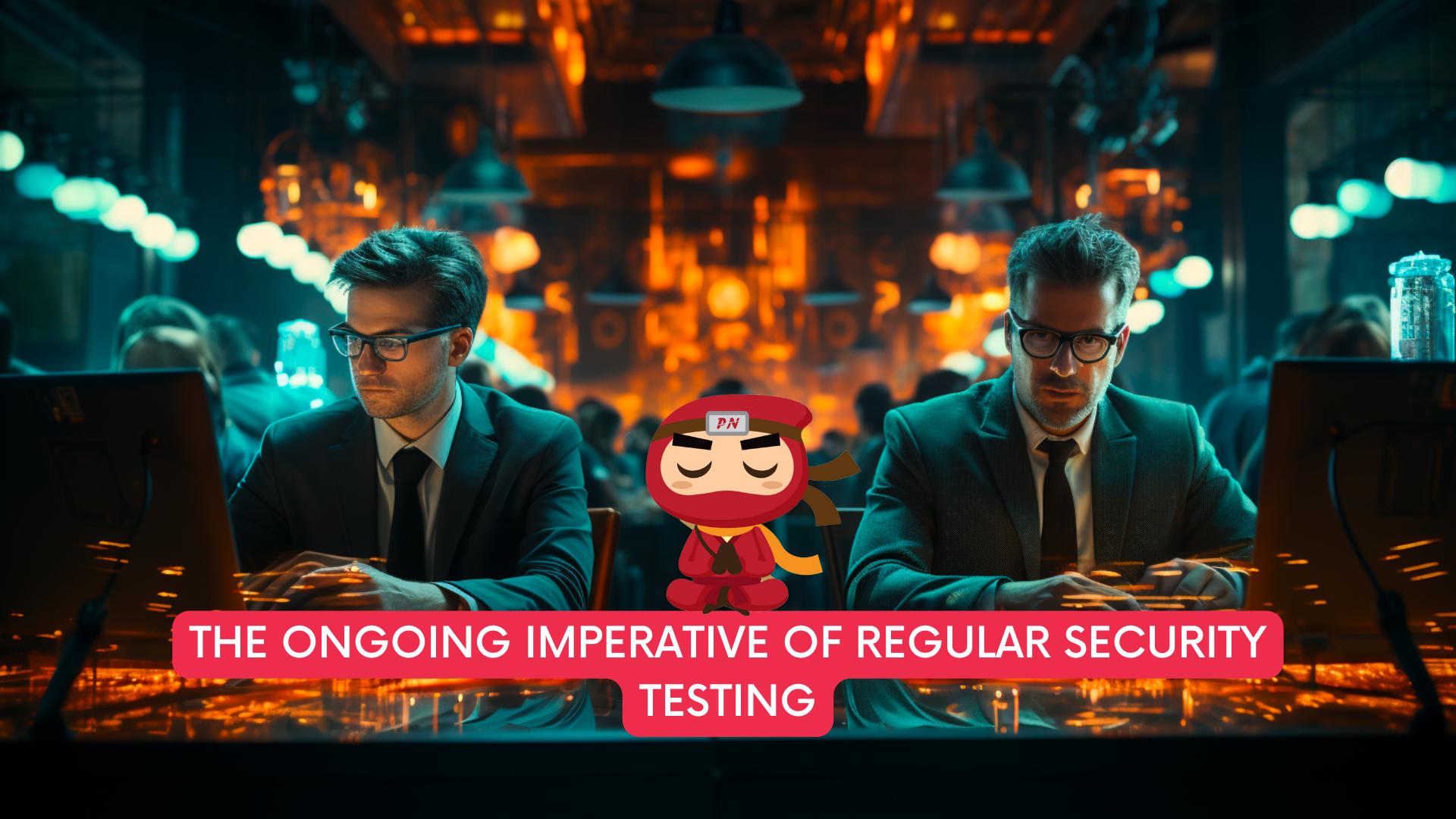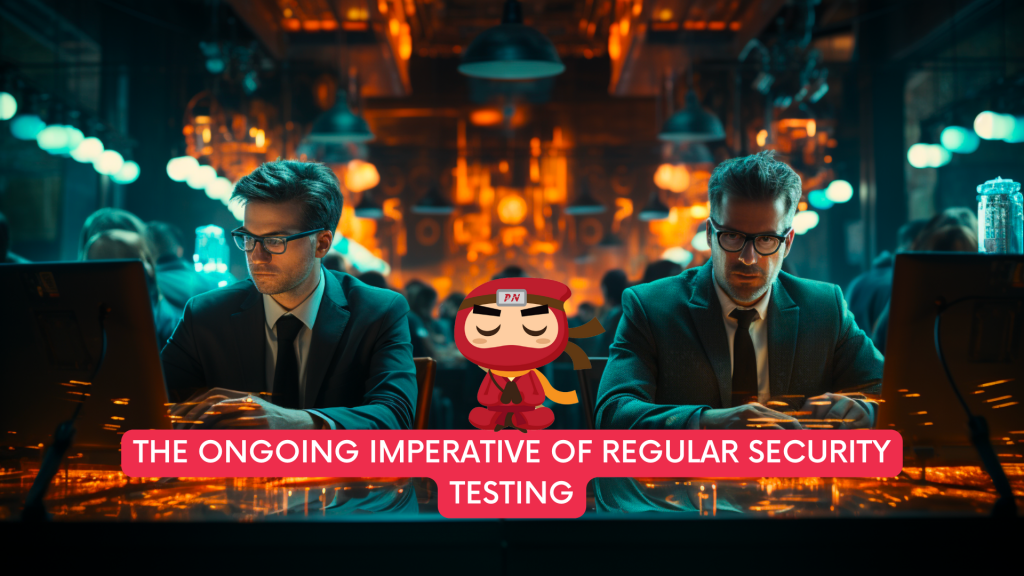KEEP IN TOUCH
Subscribe to our mailing list to get free tips on Data Protection and Cybersecurity updates weekly!







The importance of conducting security testing cannot be overstated. It’s not merely a one-time event but an ongoing, iterative process that should be woven into the fabric of an organization’s cybersecurity strategy.
Regular and frequent security testing is the bedrock of identifying potential vulnerabilities, ensuring a robust defense against cyber threats, and, crucially, upholding the protection obligations under regulations such as the PDPA (Personal Data Protection Act).
Security testing is not a static, isolated event but a continuous cycle that adapts to the evolving threat landscape. Cyber threats are dynamic and ever-changing, making it imperative for organizations to conduct security testing regularly and as frequently as practicable. This proactive approach allows for the identification and remediation of vulnerabilities before they can be exploited by malicious actors.
Regular security testing involves a comprehensive evaluation of an organization’s systems, networks, and applications. This includes penetration testing to simulate real-world attacks, vulnerability assessments to identify potential weaknesses, and security audits to ensure compliance with established security policies. The cyclical nature of security testing aligns with the dynamic nature of cybersecurity threats, providing organizations with a proactive defense mechanism.

One of the primary reasons for the regularity of security testing is its ability to identify potential “loopholes” in an organization’s cybersecurity defenses. These loopholes, if left unaddressed, could pose significant risks and breach the protection obligations under regulations like the PDPA. As technology advances and cyber threats become more sophisticated, new vulnerabilities may emerge, making continuous testing essential.
Penetration testing, in particular, mimics the actions of a malicious actor seeking to exploit vulnerabilities in the system. By simulating real-world attack scenarios, organizations can identify weaknesses in their defenses and address them proactively. This not only protects sensitive data but also safeguards the organization’s reputation and trust among stakeholders.
For organizations handling personal data, compliance with data protection regulations is non-negotiable. The Personal Data Protection Act (PDPA) imposes obligations on organizations to protect the personal data they handle. Regular security testing is instrumental in upholding PDPA compliance by ensuring that the systems and processes in place effectively safeguard personal data from unauthorized access, disclosure, or alteration.
Continuous testing allows organizations to stay ahead of emerging threats and evolving regulatory requirements. By regularly assessing their cybersecurity posture, organizations can demonstrate due diligence in fulfilling their obligations under the PDPA. This not only mitigates the risk of regulatory penalties but also fosters a culture of responsible data handling and privacy protection.
To truly embed the importance of security testing, organizations should integrate it into their organizational culture. This involves creating awareness among employees about the significance of security testing, fostering a culture of cybersecurity awareness, and providing training on recognizing and reporting potential security issues.
Employees play a crucial role in maintaining a secure digital environment, and their active involvement can contribute to the success of security testing initiatives. Organizations should encourage a mindset that views security testing not as a hindrance but as a proactive measure to protect both the organization and its stakeholders.
While the investment in security testing may seem substantial, it pales in comparison to the potential costs associated with a security breach. The financial, reputational, and legal repercussions of a data breach can be catastrophic. Regular security testing serves as a cost-effective approach to cybersecurity by identifying and addressing vulnerabilities before they escalate into major incidents.
The proactive nature of security testing minimizes the need for reactive measures, reducing the financial burden associated with incident response, legal proceedings, and reputational damage control. By investing in regular security testing, organizations make a strategic investment in the long-term resilience and sustainability of their digital infrastructure.

In conclusion, the importance of conducting regular security testing cannot be stressed enough in the ever-evolving landscape of cybersecurity. It is a dynamic, ongoing process that goes beyond compliance requirements and embraces a proactive defense against emerging threats. Regular testing is instrumental in identifying potential “loopholes” in an organization’s cybersecurity, upholding compliance with regulations such as the PDPA, and fostering a culture of cybersecurity awareness.
By integrating security testing into the organizational culture, viewing it as a continuous cycle rather than a one-time event, and recognizing its cost-effective benefits, organizations can fortify their digital fortresses. In the relentless pursuit of a secure digital landscape, regular security testing stands as a sentinel, guarding against potential threats and ensuring the resilience of organizations in the face of an ever-changing cyber landscape.
Your appointed DPO can work with you on your PDPA compliance, ensuring that there will be policies in place to make sure that the handling of personal data is PDPA compliant.
A Data Protection Officer (DPO) oversees data protection responsibilities and ensures that organisations comply with the Personal Data Protection Act (PDPA). Furthermore, every Organisation’s DPO should be able to curb any instances of PDPA noncompliance as it is the officer responsible for maintaining the positive posture of an organisation’s cybersecurity.
DPOs complement organisations’ efforts to ensure that the organisation’s methods of collecting personal data comply with the PDPA. It also ensures that policies are set in place to make sure that there will be no instances of data breaches in the future.
Don’t wait any longer to ensure your organisation is PDPA compliant. Take our free 3-minute PDPA Compliance Self-audit checklist now, the same “secret weapon” used by our clients to keep them on track. Upon completion, we will send you the results so you can take the necessary action to protect your customers’ data. Complete the free assessment checklist today and take the first step towards protecting your customers’ personal data.